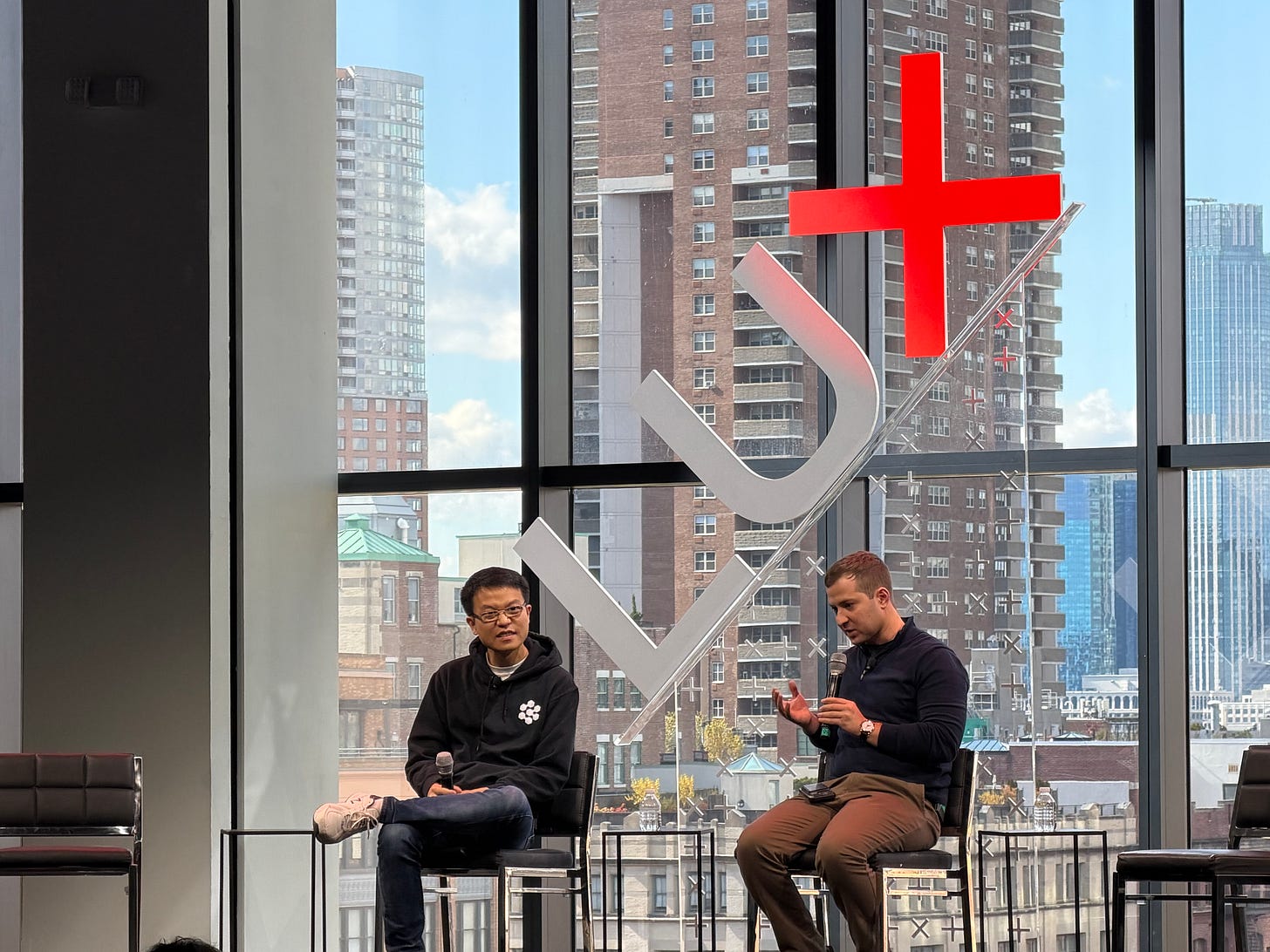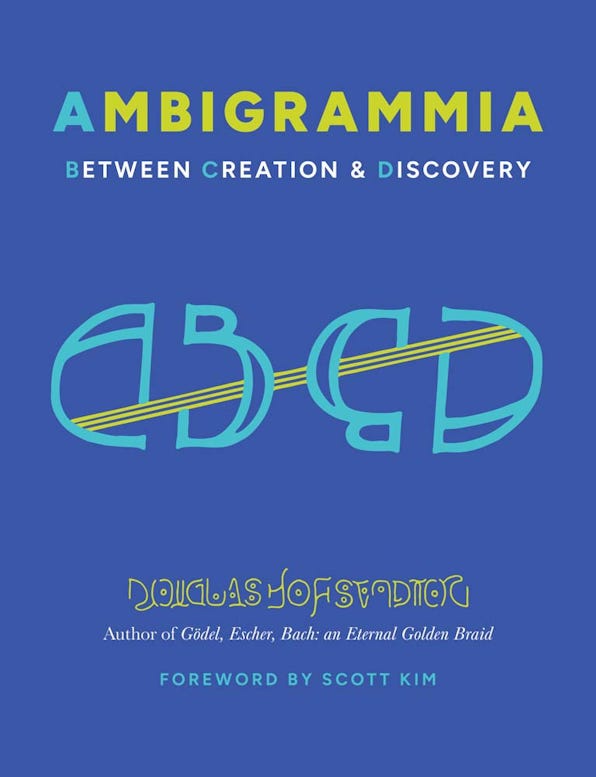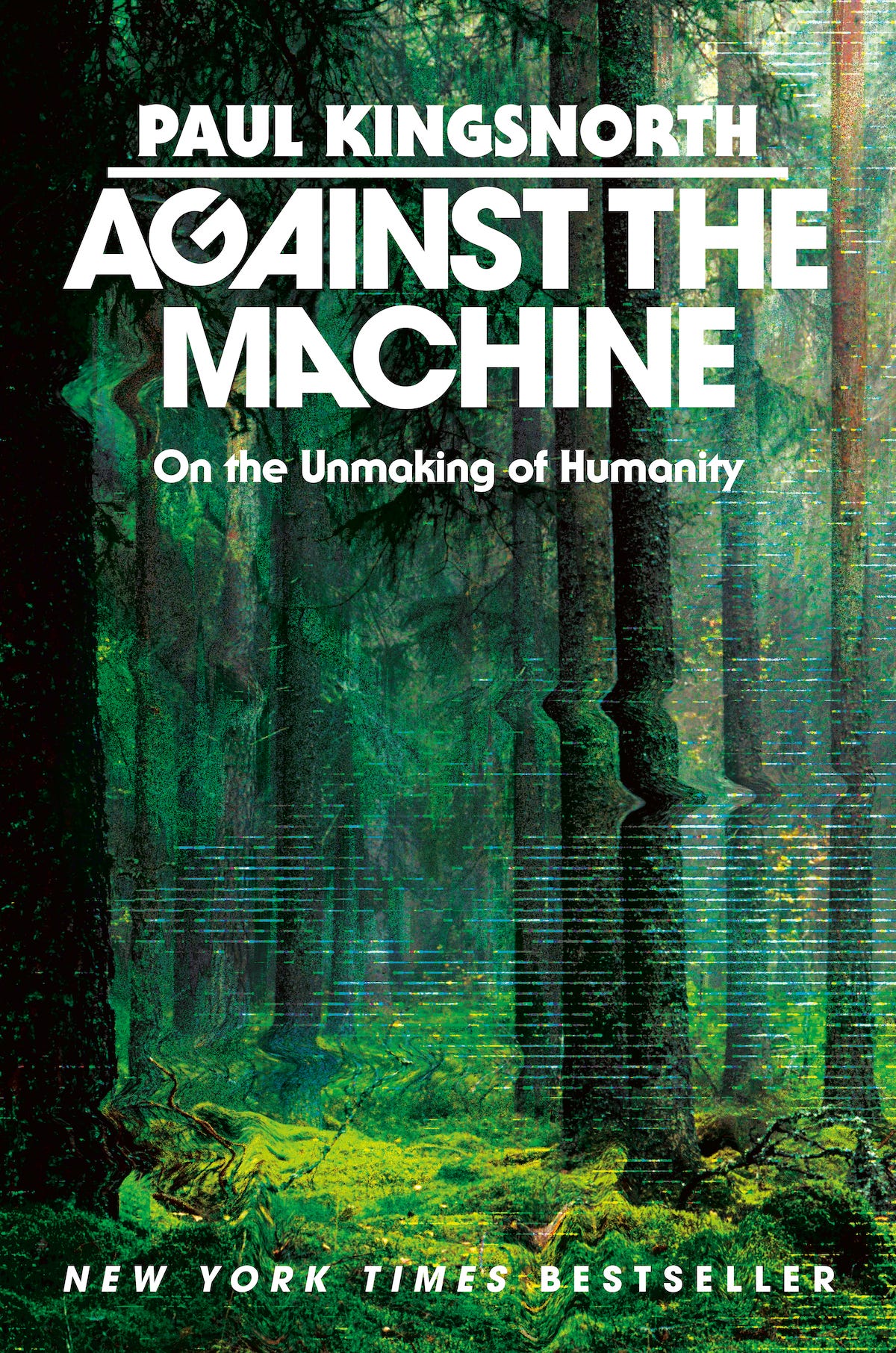Skip: A Grand Strategy of Reciprocity. Catch: Low standards in school, our “cognitive warfare” failure, and EtherHiding. Plus the present and future of wargaming with Wargaming Weekly.
From Lux Capital
Breaking early this morning in Bloomberg: the public launch of a new AI biosecurity startup named Valthos, co-founded by Kathleen McMahon and our own Tess van Stekelenburg. “‘The only way to deter an attack is to know when it’s happening, update countermeasures, and deploy them fast,’ said McMahon, who was previously the longtime leader of Palantir Technologies Inc.’s life sciences division.” We co-led the $30 million funding alongside Founders Fund and OpenAI.
This week, we’re also excited to announce that a new startup, 1001 AI, which aims to create AI infrastructure for critical industries across the Middle East and North Africa, has raised $9 million in a seed round led by Lux, General Catalyst, and CIV.
As Lux’s Deena Shakir told TechCrunch, “We’re extremely bullish on AI that solves physical-world problems at scale — i.e., optimizing how airports turn around flights, how ports move cargo, how construction sites operate. …The MENA region offers significant potential in this space with mission-critical infrastructure that’s under-digitized and ripe for transformation.”
Finally, we hosted our third Lux AI Summit in New York City this week with several hundred founders, engineers, researchers and scientists on stage and in attendance. The theme, developed by Grace Isford, was “The AI Canvas” on how we go from asking what can we build to what should we build.
I particularly enjoyed the conversation between Cognition AI’s Scott Wu and our own Brandon Reeves on the difference between an AI coding copilot and autonomous software engineering. The Riskgaming team recorded two live podcasts during the show — look for them in the weeks ahead.
From around the web
1. Reciprocal delusion
I’m starting this week with something you shouldn’t waste your time on: Oren Cass’ latest in Foreign Affairs. With the United States no longer hegemonic, Cass proposes a new grand strategy of “reciprocity,” where the United States demands that allies take primary responsibility for their own defense, maintain balanced trade rather than running persistent surpluses, and decouple economically from China. Even leaving aside his oversimplification of the history of the post–Cold War era and questionable take on the economics of trade, his strategy contains a fatal contradiction: he claims America is too weak to maintain hegemony yet simultaneously strong enough to coerce allies into accepting harsh new terms. If America recedes from our allies, they will look elsewhere and simply hedge toward China or pursue independence. That’s an obvious loss for America.
2. No child left ahead
On to things you should check out: In The Atlantic, Idrees Kahloon complicates the narrative about why American children are falling behind. It isn’t just the pandemic or cell phones (although those certainly haven’t helped as we discussed with Jonathan Haidt on the podcast a while back). Rather, he argues, poorer educational outcomes are rooted in reduced academic standards and lowered expectations for our kids — two trends Mississippi has lately shown can be reversed.
In short, schools have demanded less and less from students—who have responded, predictably, by giving less and less. The timing lines up here, too. Around the same time that smartphones were taking off, a counterrevolution was brewing against the old regime of No Child Left Behind, the George W. Bush–era law passed in 2002 that required schools to set high standards and measured school progress toward them through stringent testing requirements. Bush famously said that he wanted to tackle “the soft bigotry of low expectations,” and there’s real evidence that he did. As controversial as it was, No Child Left Behind coincided with increased school performance, especially for those at the bottom.
3. Dumb wars
The United States’ bad grades bode ill for the future of war. I liked Renee Pruneau Novakoff’s framing of the issue: the United States is failing at “cognitive warfare” —military operations designed to influence attitudes and behaviors — because it has prioritized technology over human expertise, creativity, and regional knowledge that adversaries like China and Russia excel at deploying.
The Department of Defense and the intelligence community have flirted with the need for expertise in the human domain or social cultural sphere for years. The Department of Defense put millions of dollars into socio cultural work in the 2015-time frame. This focus went away as we started concentrating more on near peer competition. Instead, we focused on technology, better weapons and more complex collection platforms as a way to compete with these adversaries. We even looked to cut Human Intelligence (HUMINT) to move toward what some call a lower risk approach to collection—using technology instead of humans.
4. Chain gang
More scary war news: Google researchers announced that a group in North Korea has become the first observed using “EtherHiding,” a novel technique that stores malware in blockchain smart contracts to make it nearly impossible to take down through traditional methods. The group uses this technique to target and steal from cryptocurrency developers.
North Korea’s social engineering campaign is a sophisticated and ongoing cyber espionage and financially motivated operation that cleverly exploits the job application and interview process. This campaign targets developers, particularly in the cryptocurrency and technology sectors, to steal sensitive data, cryptocurrency, and gain persistent access to corporate networks.
5. Rainy day fund
In more uplifting news, GiveDirectly is piloting a program that uses Google’s AI-powered flood forecasting system to deliver cash payments to vulnerable Bangladeshi farmers up to four days before floods hit. The hope is the advance funds will allow them to protect their livestock, harvest crops early, and better prepare for disaster. This is more evidence that weather prediction may be one thing we’re starting to get right.
The nonprofit previously trialled a similar project in Nigeria’s Kogi State, where it handed out early cash to 4,463 people before floods in August 2024. Many invested in improving their farms and buying seeds, the trial found.
In a separate pilot by the International Rescue Committee in 2022, Nigerian farmers who received early cash bought more farm inputs and animals than those who received later aid. They also diversified their income by migrating for work.
6. Thinking outside the bot
Finally, our scientist-in-residence Sam Arbesman recommends two books: Douglas Hofstadter’s Ambigrammia: Between Creation and Discovery and Paul Kingsnorth’s Against the Machine: On the Unmaking of Humanity. In an age when algorithms and artificial intelligence increasingly shape our perceptions, these two books remind us what makes human consciousness irreducible.









